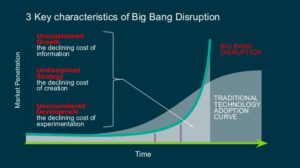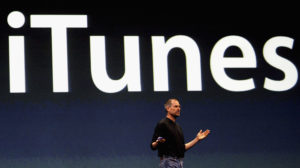Every new year sees a slew of top 5 and top 10 lists looking backwards. Here’s one that looks forward, predicting the five biggest disruptive technologies and threatened industries for 2014.
5 Industries Facing Disruption In 2014


Every new year sees a slew of top 5 and top 10 lists looking backwards. Here’s one that looks forward, predicting the five biggest disruptive technologies and threatened industries for 2014.

Retailers are beginning in earnest to deploy technologies marrying the best aspects of online e-commerce with shopping malls and physical stores.

Like it or not, Sen. Jay Rockefeller’s new bill asks the right questions about online streaming television competition.

While “tradition” is a gating factor in the ongoing transformation of the legal industry, in the post-Great Recession legal market of 2013, technology and changing values are rapidly disrupting traditional legal services. This is an exciting moment for legal innovators.

Pandora’s antitrust lawsuit against ASCAP is a leading-edge dispute, scheduled for trial by year-end, that may help catalyze a new approach to the old question of whether — and if so to what extent — owners of copyrighted digital content are permitted to refuse to deal with competing distribution channels on dramatically different commercial terms.

The Ninth Circuit confirmed my prediction by tossing one of the private antitrust class actions against Apple, which had challenged the lawfulness of the proprietary DRM technology Apple initially used for downloadable digital music.

Like most legal subjects dealing with technology, copyright law is lagging behind the fast-moving and disruptive changes wrought by social media to old legal rules for determining rights to Internet content. Things may at last be getting a bit more settled.

In the continuing conflict between social media and copyright law, only time will tell. Once again, disruptive technology is caught in the middle.

Tesla is going to have to slog through a long and extremely expensive 50-state battle against archaic dealer-protection laws to implement its business model. Wish them luck.

Deconstructing the antitrust analysis applied by the FTC reveals the daunting task it faced in seeking to hold Google accountable for monopolization. The decision to fold-up the agency’s tent represents an admirable instance of prosecutorial restraint by a Commission that had been very publicly hounded by Google’s rivals.